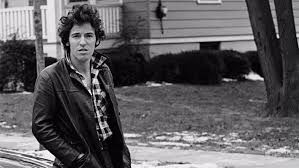Child Development
Born to Run, Born to Return: The Paradox of Freehold
In telling his evocative story, Bruce Springsteen helps us to tell our own.
Posted June 19, 2018

My wife and I recently had the opportunity to see “Springsteen on Broadway”. For those who are not familiar with this production, it is a one-man show written, directed and performed by Bruce Springsteen that is built both upon his music, and his tremendously compelling (and at times tremendously harrowing) autobiography, “Born to Run”.
“Springsteen on Broadway” is an incantatory melding (or perhaps melting) of story and song that, like much of his career, is uncategorizable. From my perspective, it provided both a summing up of the artist’s vast panorama of musical pathways, as well as a summoning up of the complicated conglomerate of demons, angels and ghosts that were always, and still remain, the engine that drives his artistry.
While the show spoke (and sung) to me on many levels, for the purposes of this post I wanted to focus on the part of the narrative that details his struggle to burst the bounds of his bleak small-town upbringing “in the boonies” and leave home in pursuit of his dream, his calling.
In his introduction to the song “Thunder Road”, Mr. Springsteen conjures up the memory of lying on his back on a beat-up couch that sat atop an old truck loaded with his and his bandmates’ belongings as they finally slipped away from their neighborhood in search of horizons beyond the Jersey shore that they had always been sequestered in. Feeling the ocean breezes drift across his face and staring up at the night sky filled with stars, he was consumed by a sense of hopefulness, of optimism, of inexpressible, infinite possibility, the world a “blank page to be written on.”
And so many of his most popular songs address that same theme—the desire to break out of the confines of one’s upbringing, to hit the geographical or psychological road (sometimes they are the same, sometimes they are different) and discover truth—personal truth, relational truth, moral truth, spiritual truth, and perhaps even, under the best of circumstances, true love.

But one of the many contradictions that characterize Mr. Springsteen, contradictions that he acknowledges in a bemused and unshielded way, is that while he became wealthy and famous furiously writing and singing about the desire to leave home and the desperate urgency that fuels that desire, for years now he has been living less than ten minutes from that very home.
For me, it is difficult to ignore the irony that lies within the name of the town in which he grew up, from which he decamped, and to whose general environs he eventually returned—Freehold. Because the oxymoronic designation "Freehold” captures the complicated tug of loyalties that define our journey towards selfhood. We are always “free” to leave our home, but we are also always “held” by our childhood, no matter how far we travel, no matter how long we journey. Eventually, most of us realize that our insistent need to prove to ourselves that we are entirely independent and unfettered turns out to be the most imprisoning of life’s endeavors.
Maturity requires us to find a way to reconcile the competing forces of holding and of letting go, of being held and of wriggling free. In this regard, we all long to leave our personal “Freehold’s," but we will never fully succeed. We are designed to seek liberation, but as we grow, we encounter the growing awareness that complete liberation is unattainable—it is in the middle ground between wish and reality that we all must toil, struggling to create a life of purpose and connection while forever tethered to the world in which we were raised. That we must re-visit and make sense of our origins is unavoidable—how we do so is what defines us and our capacity to become whom we are destined to become.
The magic of “Springsteen on Broadway," and indeed of any meaningful creative enterprise, is that the narrator’s personal tale is one that so many of us can find ourselves within, as well—we recognize who we are in his humbling, stumbling odyssey to grow into someone whom he can believe in. Listening to his irresistible fable, we find a way to lighten our opinion of ourselves and become someone whom we can believe in, as well. These moments of truth may only last a moment, but they can certainly intensify our sense of aliveness, and help us to get by with a certain dignity and grace in between those moments, especially when we are not feeling particularly alive.
Listening to Bruce Springsteen sing his old songs in this new and different context was a reminder to me that the destinations that every young adult sets out for are not so much physical places as emotional spaces, spaces in which our past can be seen, understood and re-experienced in innovative, imaginative and transformative ways.


